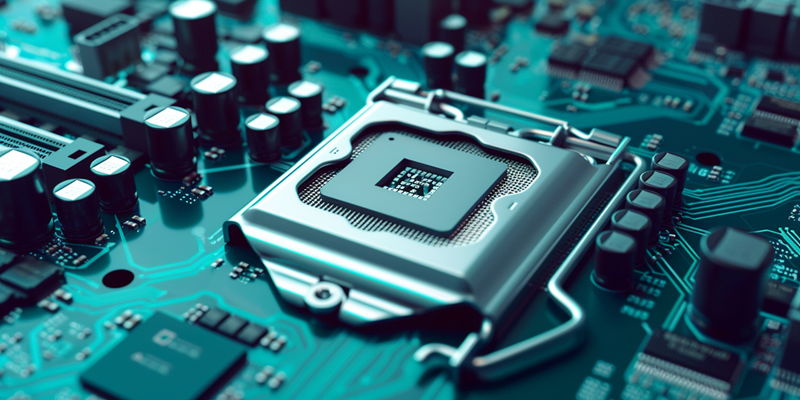AMD’s announcement of the next-generation EPYC “Turin” CPUs marks a significant milestone for the tech giant, particularly for the EPYC 9005 series. With these new processors, AMD aims to redefine performance standards for data centers, implementing the groundbreaking “Zen 5” core architecture. This latest lineup is crafted to address the varied demands of compute, cloud, telco, and edge segments, underscoring AMD’s aspiration to deliver robust and tailored solutions across the industry.
The procession towards enhancing data center capabilities with advanced processor technology has been dramatic, with AMD’s Turin CPUs epitomizing this evolution. These CPUs are not just pivotal for their substantial increase in core counts, but also serve as a testament to AMD’s strategic planning for the future of data processing.
The Processing Powerhouse: EPYC Turin’s Core Counts and Architectural Leap
Unprecedented Core Increase and Multithreading Performance
Featuring up to a colossal 192 “Zen 5” cores, AMD’s EPYC Turin CPUs are poised to drive substantial performance enhancements, boasting the capability to run 384 threads through simultaneous multithreading. This is not a mere incremental upgrade, but rather a monumental advance that drastically expands the computational boundaries within data centers. As the 128-core variant of the EPYC Turin far exceeds the performance of Intel’s 5th Gen Xeon Emerald Rapids, with gains between 2.5 to 5.4 times across a swath of workloads, AMD is making a bold declaration about its processor capabilities.
Compatibility and Memory Enhancement
The Turin CPUs underscore AMD’s commitment to preserving existing data center investments by maintaining compatibility with the 4th Gen EPYC family, utilizing the SP5 socket. Alongside socket compatibility, these new processors elevate performance with support for DDR5 6000 MT/s memory, promising to accelerate data processing with swifter memory speeds.
Diving Into the Details: EPYC Turin’s Technical Specifications
Scalability and Configuration Diversity
AMD’s approach with the EPYC Turin CPUs is to provide a degree of scalability that eclipses the capabilities of their predecessors. The expanded range also signifies AMD’s readiness to rise to the challenges of increasingly complex data-centric applications, empowering multithreaded processes, and underscoring the potential for these processors to streamline operations requiring massive parallelism.
Memory and Connectivity Upgrades
Supporting DDR5 memory capacities up to a whopping 4 TB on an 8 DIMM motherboard configuration, these processors break new ground in enabling extensive data management and heavy-duty workloads. This increase in memory capacity is matched by an enhancement in connectivity, featuring up to 128 PCIe Gen5 lanes.
The Competitive Landscape: EPYC Turin Versus Intel Offerings
AMD’s Performance Confidence Against Intel
AMD’s confidence in the EPYC Turin lineup is not just speculation — it’s rooted in concrete performance indicators. When juxtaposed with Intel’s upcoming offerings, such as the Xeon Granite Rapids P-Core and Sierra Forest E-Core, AMD’s CPUs, with up to 192 cores, appear to be formidable competitors.
Looking Beyond: The Future Roadmap of AMD EPYC
From Turin to Venice: The Ongoing Evolution
Examining AMD’s roadmap further reveals an ambitious trajectory for the EPYC family. The journey doesn’t end with Turin; it extends forward with intriguing prospects such as Venice and the denser Turin-Dense, all vying for supremacy in core counts and architectural enhancements.
The Impact of EPYC Turin on the Data Center Sector
Reimagining Server Capabilities
With AMD’s launch of the EPYC Turin CPUs, there emerges a vision of a new era for server capabilities – one marked by power, versatility, and scalability. The proposed gains in performance, memory speed, and customizable TDP options serve to propel data center capabilities forward, promising an ecosystem where bottlenecks are diminished, and throughputs maximized.
Anticipation of Operational Debut
The excitement surrounding the forthcoming operational debut of AMD’s EPYC Turin CPUs is palpable. As benchmarks turn into real-world applications, the true test will be in the operational environments of cutting-edge data centers across the globe.

